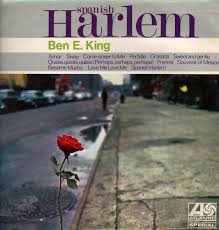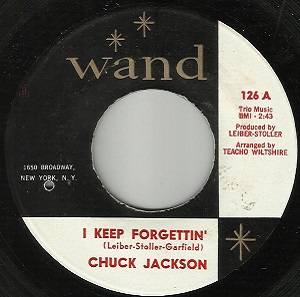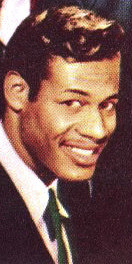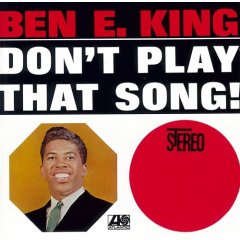
The Coasters are an American rhythm and blues/rock and roll vocal group who had a string of hits in the late 1950s. Beginning with "Searchin'" and "Young Blood" in 1956, their most memorable songs were written by the songwriting and producing team of Leiber and Stoller. Although the Coasters originated outside of mainstream doo-wop, their records were so frequently imitated that they became an important part of the doo-wop legacy through the 1960s. The Coasters holds the distinction of being the first group inducted into The Rock And Roll Hall Of Fame.

Lyricist Jerome Leiber and composer Michael Stoller were American songwriting and record producing partners. They found success as the writers of such crossover hit songs as "Hound Dog" (1952) and "Kansas City" (1952). Later in the 1950s, particularly through their work with The Coasters, they created a string of ground-breaking hits—including "Young Blood" (1957), "Searchin'" (1957), and "Yakety Yak" (1958)—that used the humorous vernacular of teenagers sung in a style that was openly theatrical rather than personal.

"Yakety Sax" is a pop novelty instrumental jointly composed by James Q. "Spider" Rich and Boots Randolph. Saxophonist Randolph popularized the selection in his 1963 recording, which reached number 35 on the pop charts. UK comedian Benny Hill later made it more widely known as the closing theme music of The Benny Hill Show. The piece is considered Randolph's signature work.

"Spanish Harlem" is a song recorded by Ben E. King in 1960 for Atco Records. It was written by Jerry Leiber and Phil Spector and produced by Jerry Leiber and Mike Stoller. Leiber credited Stoller with the arrangement in a 1968 interview; similarly, Leiber said in a 2009 radio interview with Leiber and Stoller on the Bob Edwards Weekend talk show that Stoller had written the key instrumental introduction to the record, although he was not credited. Stoller remarks in the team's autobiography Hound Dog that he had created this "fill" while doing a piano accompaniment when the song was presented to Ahmet Ertegun and Jerry Wexler at Atlantic Records, with Spector playing guitar and Leiber doing the vocal. "Since then, I've never heard the song played without that musical figure."

"I Keep Forgettin'" is a song by Chuck Jackson, written by Jerry Leiber, Mike Stoller, and Garfield. It appears on his second studio album Any Day Now. It peaked at No. 55 on the Billboard Top 100 and remained on the chart for 7 weeks. It did not chart on the R&B chart. This single is often cited as one of the most innovative yet least commercial singles written and produced by Leiber-Stoller.
Lester Sill was an American record label executive, best remembered as Phil Spector's partner in Philles Records, and also as the head of both Colpix Records and the later Colgems Records. His three sons are music supervisors in the film and TV businesses: Joel Sill, Greg Sill and Lonnie Sill. His stepson Chuck Kaye is a longtime music publishing executive.

"Kansas City" is a rhythm and blues song written by Jerry Leiber and Mike Stoller in 1952. First recorded by Little Willie Littlefield the same year, the song later became a chart-topping hit when it was recorded by Wilbert Harrison in 1959. "Kansas City" is one of Leiber and Stoller's "most recorded tunes, with more than three hundred versions", with several appearing in the R&B and pop record charts.

"Searchin'" is a song written by Jerry Leiber and Mike Stoller specifically for the Coasters. Atco Records released it as a single in March 1957, which topped the R&B Chart for twelve weeks. It also reached number three on the Billboard singles chart.

"Yakety Yak" is a song written, produced, and arranged by Jerry Leiber and Mike Stoller for the Coasters and released on Atco Records in 1958, spending seven weeks as #1 on the R&B charts and a week as number one on the Top 100 pop list. This song was one of a string of singles released by the Coasters between 1957 and 1959 that dominated the charts, one of the biggest performing acts of the rock and roll era.
Jerome Louis Jackson known as J.J. Jackson, is an American soul/R&B singer, songwriter, and arranger. His singing style is as a belter. Jackson best known for the song "But It's Alright", which he co-wrote with Pierre Tubbs. The song was released in 1966 and then re-released in 1969, to chart success on both occasions. The liner notes to his 1967 album, J.J. Jackson, on Calla Records, stated that he weighed 285 pounds.

Billy Guy was an American singer, best known as a lead singer for the Coasters. He was inducted into the Rock and Roll Hall of Fame in 1987.
"Along Came Jones" is a comedic song written by Jerry Leiber and Mike Stoller and originally recorded by the Coasters, in 1959 peaking at number 9 in the Billboard Hot 100 but covered by many other groups and individuals.
"Charlie Brown" is a popular Jerry Leiber and Mike Stoller song that was a top-ten hit for The Coasters in the spring of 1959. It went to No. 2 on the Billboard Hot 100 singles chart, while "Venus" by Frankie Avalon was at No. 1. It was the first of three top-ten hits for the Coasters that year. It is best known for the phrase, "Why's everybody always pickin' on me?"

"Pearl's a Singer" is a song made famous by the British singer Elkie Brooks, as taken from her 1977 album Two Days Away which was produced by the song's co-writers Jerry Leiber and Mike Stoller. The original version of "Pearl's a Singer" had been introduced by the duo Dino and Sembello – also the song's co-writers – on their 1974 self-titled album which Leiber and Stoller had produced.

"Poison Ivy" is a popular song by American songwriting duo Jerry Leiber and Mike Stoller. It was originally recorded by the Coasters in 1959. It went to #1 on the R&B chart, #7 on the Billboard Hot 100 chart, and #15 in the UK. This was their third top-ten hit of that year following "Charlie Brown" and "Along Came Jones".

"D.W. Washburn" is a song written by Jerry Leiber and Mike Stoller. Two famous recordings of the song are by the Coasters and the Monkees. It was also included in the musical Smokey Joe's Cafe.

Don't Play That Song! is the third studio album by Ben E. King. The album was released by Atlantic Records as an LP in 1962 and was home to five notable singles: "Stand by Me", "Ecstasy", "First Taste of Love", "Here Comes the Night", and the title track, "Don't Play That Song ".
Kent Levaughn Harris was an American songwriter and record producer, who is best known as the writer of novelty tunes such as "Shoppin' for Clothes" and "Cops and Robbers". He recorded under various pseudonyms including Ducky Drake and Boogaloo and his Gallant Crew.
"Saved" is a gospel and R&B-flavored song written by Leiber and Stoller and first recorded by Rock and Roll Hall of Famer LaVern Baker in 1960. The tongue-in-cheek song is written from the perspective of someone who had lived a fast, loose life but is then "saved" and is now standing on a corner preaching to the passers-by.
"One Kiss Led to Another" is a song written by Jerry Leiber and Mike Stoller and performed by The Coasters. The song reached #11 on the R&B chart and #73 on the Billboard Hot 100 in 1956. The song appeared on their 1957 album, The Coasters.












